They say necessity is the mother of all inventions.
This holds true in the case of Goa-based ‘accidental entrepreneur’ Bayiravi Mani Mangaonkar (38), who went from being an event management professional to a home-baker, and then a successful entrepreneur with the launch of Kol Kol Baby Carrier in 2014, which has an annual turnover of over a crore.
“Being a home baker was the closest I thought I would come to being my own boss. Little did I imagine that motherhood would change my life in such unexpected ways. In order to continue baking whilst looking after my 45 day old son, I stumbled upon baby wearing, and life was never the same thereafter,” Bayiravi tells The Better India.
Baby wearing is the practice of carrying your baby in a sling or any other form of cloth fastened to your chest or back. While baking, Bayiravi would often have to spend hours in the kitchen, and she found it challenging to work and care for her newborn son at the same time. As a solution, began using an old saree or dupatta to keep her son tied to her.
The idea was inspired by the age-old habits of women who would tie their children to themselves while working in fields or tea-estates.
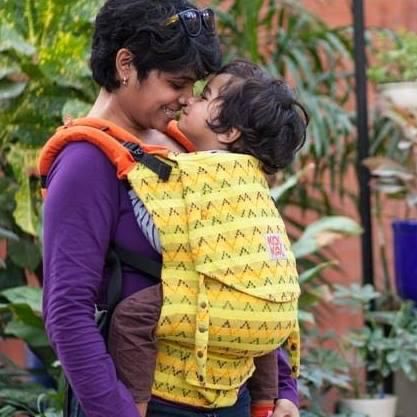
Bayiravi says the solution was good for the baby as well as the caregiver, who could now use their hands freely. She quickly figured that this was a business opportunity.
A slight change of plans
However, being an entrepreneur was not always Bayiravi’s plan. In fact, having seen her father and uncles run their own business, she says she was sure she did not want to be one. “I liked the idea of having a fixed and stable income every month. The unpredictability of being an entrepreneur did not hold any charm for me,” she says.
The first time she had forayed into entrepreneurship was when she started baking. She says this was more to shirk off boredom, as she had no formal training or prior experience in the field.
“Baking was brand-new for me, and it was all going great with a steady stream of clients until I got pregnant and had my son, Advait, in 2013. He was all of 45 days old when I went back to baking,” she says. “I had to find a way to use my hands while being there for him – managing the business and keeping the baby calm and close. This is where baby wearing helped.”
“I had two hand-me-down baby carriers of a European brand, but I found them to be uncomfortable to use,” she says.
“The baby isn’t meant to hang in the carrier. The person wearing the carrier should not feel any pain or pressure on the back. It should, in no way, lead to any discomfort,” she says.
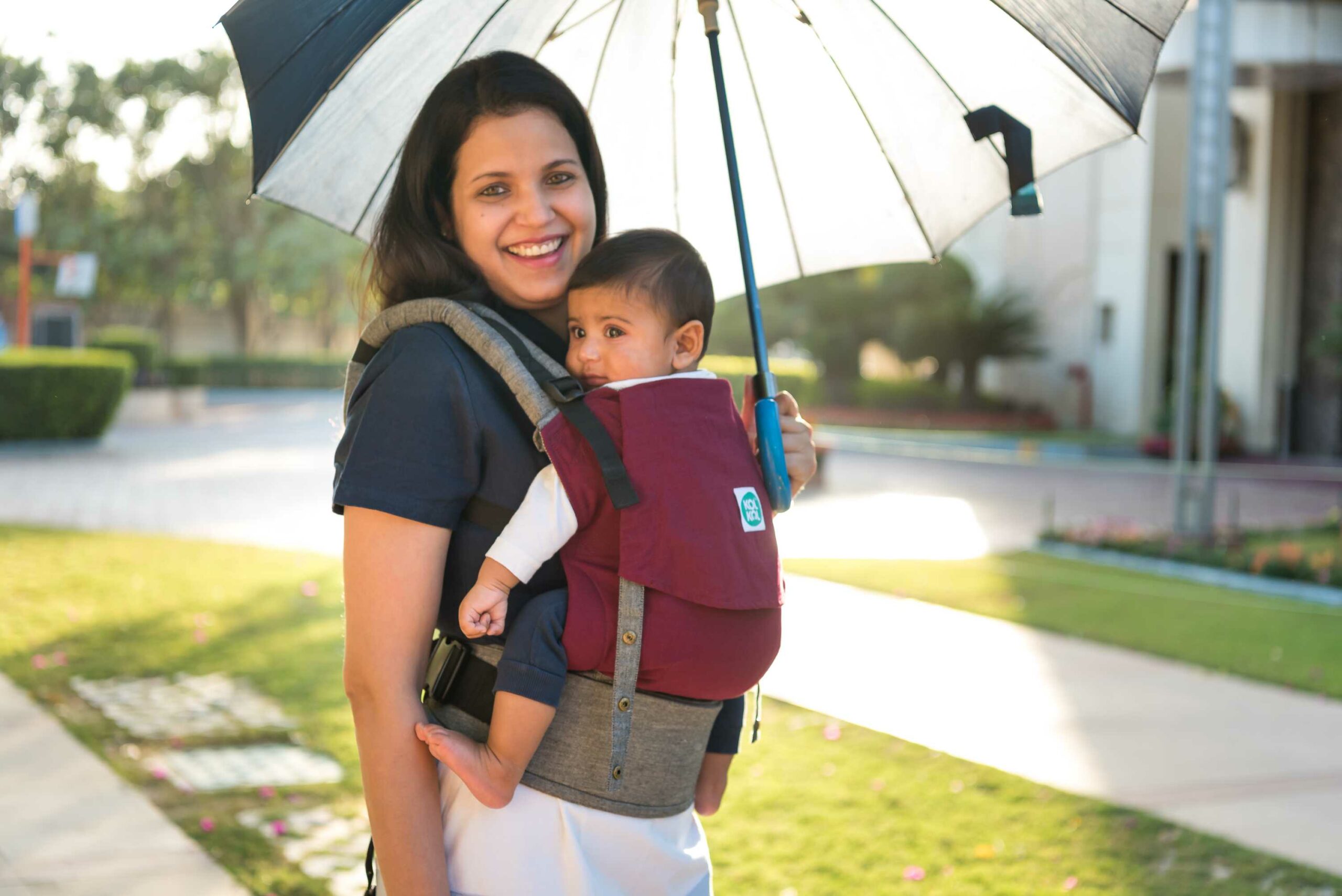
This led Bayiravi to do some reading up on ergonomic baby carriers, in which the baby fits snugly. She found a few international brands and experimented with their carriers. The first one she purchased was made out of canvas and cost almost Rs 15,000. “Since the material was too thick for Indian weather conditions, I did not really enjoy it,” she says.
So Bayiravi started experimenting with various fabrics to come up with something on her own. She understood that while there were products in the market, none of them could satisfy her. Some of the key factors for her were – a fabric that was breathable and comfortable for the baby in Indian conditions, a design that would not put any pressure on the carrier, yet strong enough to support the child, and leave enough room for free movement of the carrier. This was when she designed and created her own baby carrier.
“Given how much I could sense the benefits of baby wearing, I decided to try and make carriers for others as well,” says Bayiravi.
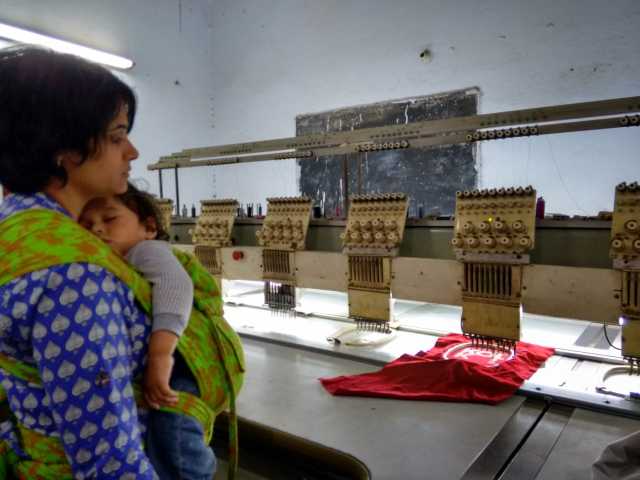
She adds that she made almost 100 different prototypes of the first carrier and gave them to around 60 parents. “In every version, there was some improvement or value addition. Even if it meant one extra button or a stitch one millimeter below or above. It took me one whole year to get it right,” she says.
Bayiravi fine tuned her product by spending hours listening to other baby carrier users. She would meticulously make notes when she heard bloggers speak about some of the drawbacks and she incorporated the solutions in her own product.
What also worked for her products was her own experience of using them.
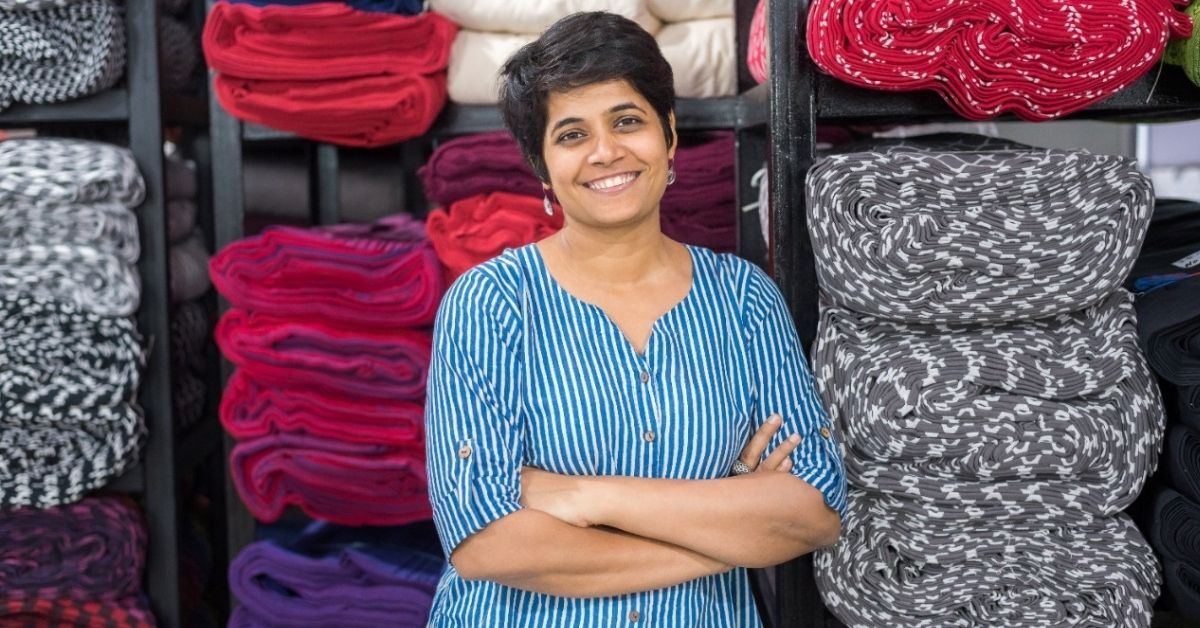
“That was the biggest advantage I came with. I knew exactly what the pain points in the carriers I used were and I worked to set them all right. I could test all the carriers I made with my own son, who by then was over one year old,” she says.
“The aim was to make a carrier so easy to use that even someone who had no idea about it could easily figure it out,” she says. There are currently two kinds of baby carriers available for sale. The price starts at Rs 2,340 and goes upward depending on the print and style one picks.
Today, Kol-Kol is a well-known brand in the world of baby carriers.
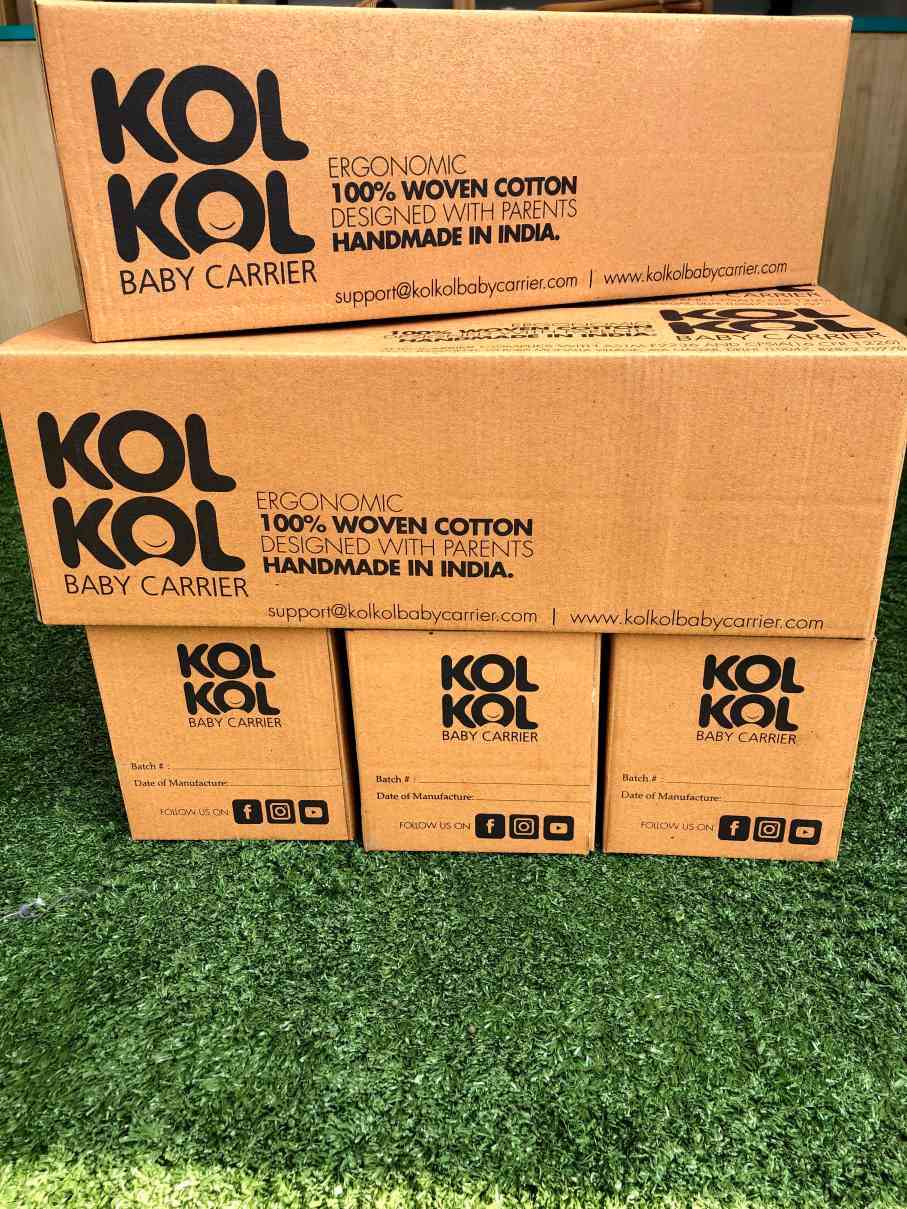
“I receive a lot of feedback that only makes me work harder. This carrier helped parents calm their baby who was suffering from colic, and another family was able to freely enjoy a holiday,” she adds.
‘One-woman army’
“When I launched Kol-Kol, my immediate circle of friends was of the belief that I had launched the business because I was bored of baking. However, nothing deterred me. I would travel to a friend’s workshop two hours away and spend hours getting sample after sample made. Not having a design background only pushed me to work harder,” she says.
Bayiravi began with an investment of Rs 50,000.
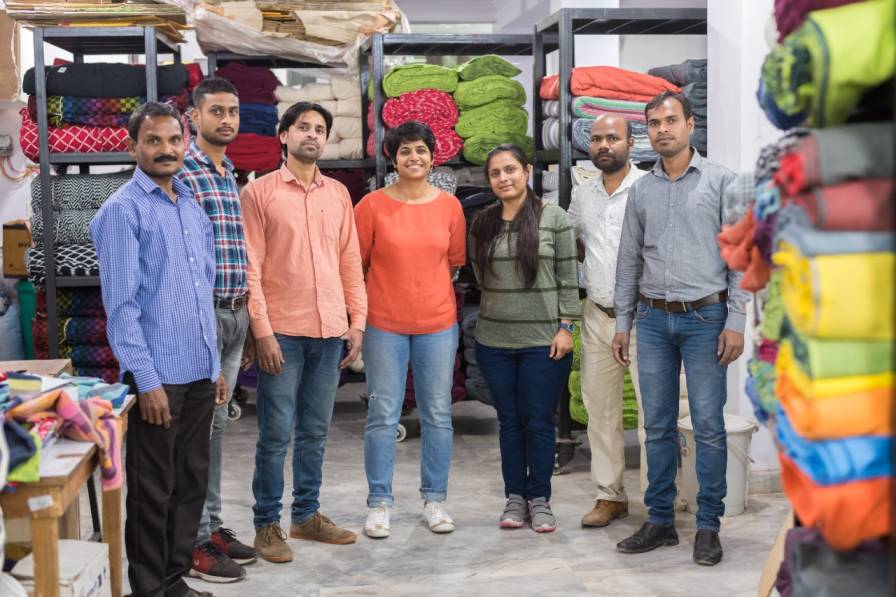
“The first big investment I made was to get a second hand sewing machine for Rs 10,000. The rest went towards the tailor’s salary and purchasing the raw material for the carrier,” she says. Having started this journey with just one tailor, Bayiravi says that it would take him close to 4 days to make one full carrier, so in a month they were only making 10-odd carriers. “The good thing, however, was that we managed to sell them all. Each carrier was priced at Rs 3,500, so we ended up making close to Rs 35,000 in the initial few months,” she says.
“Today, we have 15 tailors associated with the brand, and we make and sell more than 600 carriers each month,” she says.
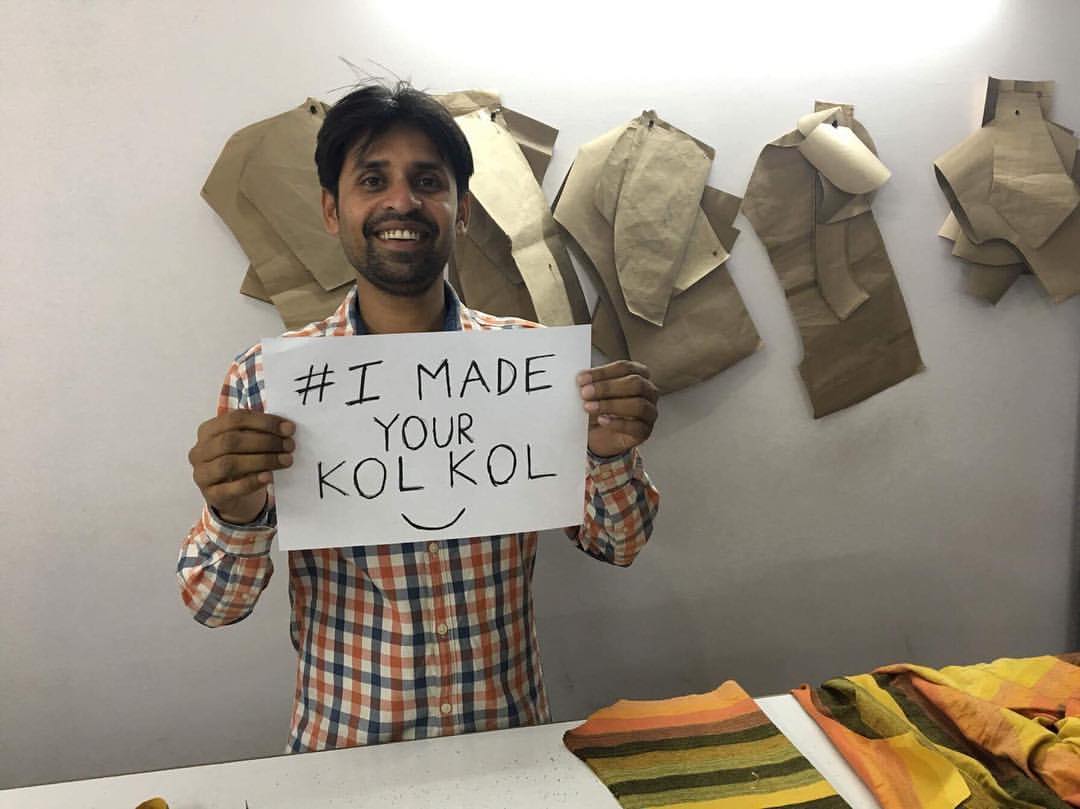
When asked if she holds on to any regrets, she says, “Not expanding faster. I have been a one-woman-army and while that has been gratifying, having more heads to discuss and deliberate might have been a good idea,” she says.
When Bayiravi started the baby carrier business she was sure of it being more scalable than the baking business. “I did not have to be involved in the physically taxing part of the business – I could use that time and energy to ideate, come up with more products and find better ways of selling them,” she says.
While the business has grown organically and continues to attract new parents from all over, Bayiravi says that the highpoint for her continues to be the feedback she receives.
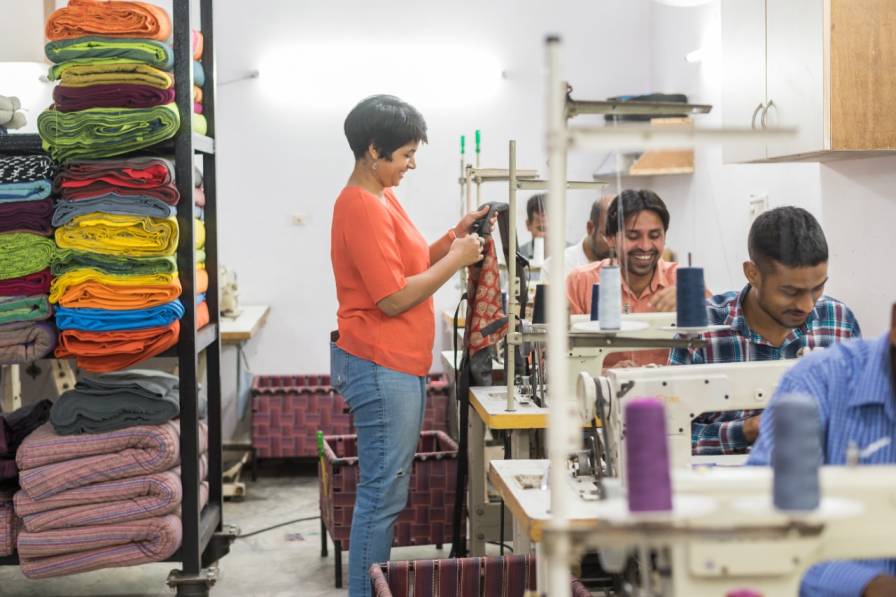
Yet another highpoint has been how the workforce at the unit has stuck with her, even through COVID, when the situation was looking rather grim.
Bayiravi says she has been a risk-averse entrepreneur and while she wishes she had taken more leaps, she might have missed out on the work-life balance if she had. “I can’t complain. It has been a steady growth and I am happy with that,” she concludes.
Click here to explore the website and find a carrier that is best suited for your needs.
(Edited by Divya Sethu)
No comments:
Post a Comment